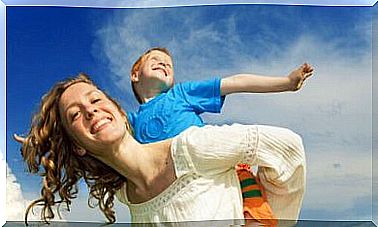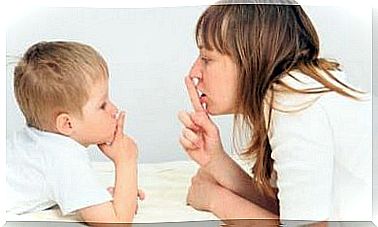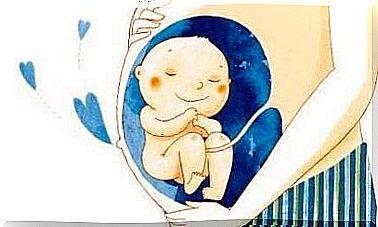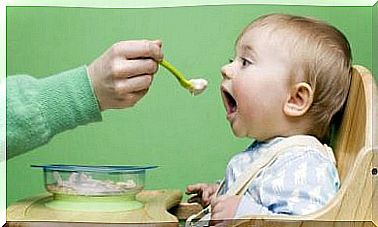Hemmets Busungar: De Nyfikna Barna

Do you have any mischief at home? If so, we need to ask you something. Do you really understand what drives them to be so restless? Why do they insist on touching everything and not listening?
The answer to this question may be simpler than you think. Behind this very active behavior is a child who is full of life and just wants to discover the world.
All children are unique and different. Some children are calm and reflective, but there are also real pranksters who are restless, curious and daring.
These mischievous kids often get labels like “uneducated” and “mischievous”. They are often misunderstood and that is why they are often judged much harsher than they deserve.
It is good for parents to try to understand the hidden psychology behind the behavior of the little bastard.
Our patience is tested
Children often go through a rebellious phase with many behavioral changes after the age of two.
The so-called “defiance age” shows that the child is developing. Children begin to manifest their own desire to be independent. They are also beginning to develop a great curiosity.
They want to get to know the world’s inner secrets. Common phrases you hear during adulthood are “I do not want” or “I can myself”.
It is important to set boundaries and prevent children from crossing them. It is better to try to use their innate curiosity. The best way to teach them during this time is to help them explore.
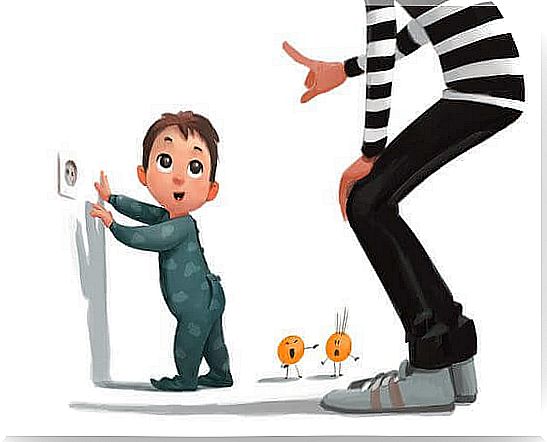
Control their impulses
Have you ever said to your child “Do not throw it away!” And as soon as you turn your back on her, does she do it anyway? If this happens and your child is younger than four years, you should know that this is normal.
Why? Because the areas of the brain that are responsible for self-control are still immature when the child is younger than four. In fact, the areas of the brain that control self-control do not fully mature until the late teens.
As parents, we must remember that just because the little one does not have full control over their behavior does not mean that we can let them do what they want.
Setting rules and boundaries helps the child behave and stay safe.
Avoid overstimulating your pranksters
Kim John Payne, author of the well-known book Simplicity Parenting , explains that children sometimes reach the same stress levels as adults.
Did you know that the more tired a child is, the more hyperactive and irritated he or she becomes?
Bus kids often search for our attention and time. But we all need a little “free time” and moments of peace and quiet when we can think in peace.
As parents, we are often the ones who overstimulate our children. We believe that the more activities our children participate in, the better their future will be.
But exhausting them or keeping them strictly occupied will not solve their “problems”. It will only make them restless.
What do our beloved pranksters need?
First, mischievous children must be allowed to explore the world. They must be able to touch, feel, taste, smell, experiment and find out how things work.
When they succeed in satisfying their curiosity, new nerve connections are established in their brains. This means that they actively learn.
Just like for adults, stimulation is the key to their development.

If you limit where they can move and give them orders such as “sit down and do not move all afternoon” you do more harm than good. It limits their learning and stresses them out.
To help them, you need to give them a safe environment and new learning opportunities every day. As parents, we must never cut their wings or limit their curiosity.
If we really want them to be better people tomorrow, we must first understand that they need balanced doses of guided activities today.
We must accompany them, guide them and orient them so that the activities they perform do not become dangerous or chaotic.
Learning to be independent
It can be difficult for us parents to acknowledge and it can even make us sad, but when our children are between 3 and 5 years old, they enter a new phase where they no longer need us with the same intensity as they did when they was smaller.
They have grown up and we do not always keep up!
Now they have other needs. Although they still want us to hold their hand and take a nap together, they also want to do certain things on their own.
Is it that bad? Not at all, this is a positive behavior because it teaches them to be independent.
Erik Erikson explains that children in this phase need to take their own initiatives in much of everyday life.
Let your child have some space and personal responsibility (always under supervision). It will promote his psychosocial development and allow him to develop and mature.
Remember to never use negative labels on your child. It is more constructive to use words that describe your child as daring, curious and wonderful.

